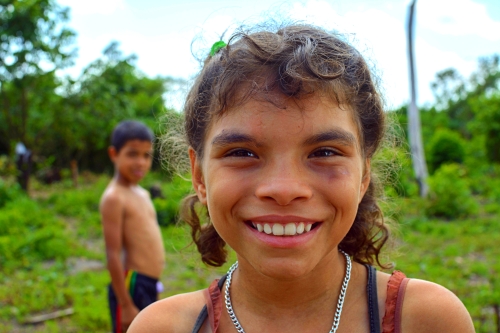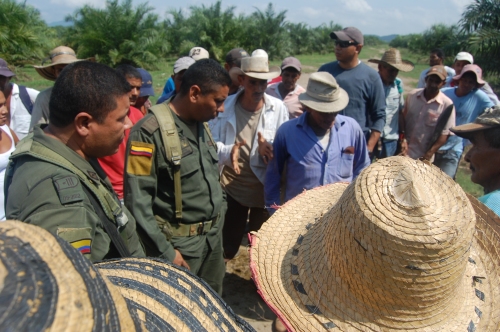Heroe
The first time I met my hero she was indistinguishable really. One of a dozen dusty, carefree children congregated like a school of fish on the edge of town as they dreamed up their next adventure. Buenos Aires seemed to be one of the best places on earth to be a kid, a small, quiet riverside town where they were free to be queens and kings of their own destiny and a whole jungle out back to explore.
The only reason she became singled out from the crowd, highlighted as unique among the mob of Indiana Jones’, came to me as a warning: “that one over there, the angelic, sweet, little girl with the springy curls and big smile? She’s a handful. Give her a foot and she’ll take a mile”.
Jimena sure is a handful; a handful of spunk, spirit, and joy. She’s nine years old and she wants to be a doctor when she grows up. She wants to help people who have heart problems. Her toothy grin and the way she snuggles up under my arm and into my heart leaves me no doubt that she’ll save many lives. She’s already saved mine.
When I met her for the second time she was living in Las Pavas with her two older sisters and her parents. If Buenos Aires is the best place to grow up, Las Pavas might be one of the worst. As the daughter of a subsistence farmer in the Colombian context, Jimena carries a bull’s-eye on her back while she tries to avoid the daily darts of hunger, harassment, gun shots, illness, and rape. The 123 families of Las Pavas are part of a national struggle for land rights, up against a government more interested in foreign investment and capitalism than human rights and food security. The Colombian authorities on a regional, state, and even national level have turned their backs on the people of Las Pavas, allowing a large-scale palm oil company to appropriate the land for palm plantations, a lucrative cash crop for export.
Amidst the atmosphere thick with tension, frustration, and desperation, Jimena is a source of light. The curls on her head reflect the buoyancy of her soul and the wind in her sails; the energy that moves her is contagious. Her curiosity is insatiable and in her rush to get all of her questions out she’ll often mix up her R’s with her L’s. We enjoy swinging upside down in hammocks and cheating at dominos.
I don’t want to give the wrong impression. Jimena isn’t immune to the violence she has to face daily. She calls the palm company security guards names, and she tells me she wants to throw rocks at them. Her smile disappears and her body tenses with fear when she recounts the threats of rape she receives when she walks an hour to Buenos Aires for school.
It’s no easy lifestyle. But her family has chosen to live in the midst of conflict, giving up amenities like running water and electricity, in order to defend their right to the land and Jimena will not give up. So why should I?




